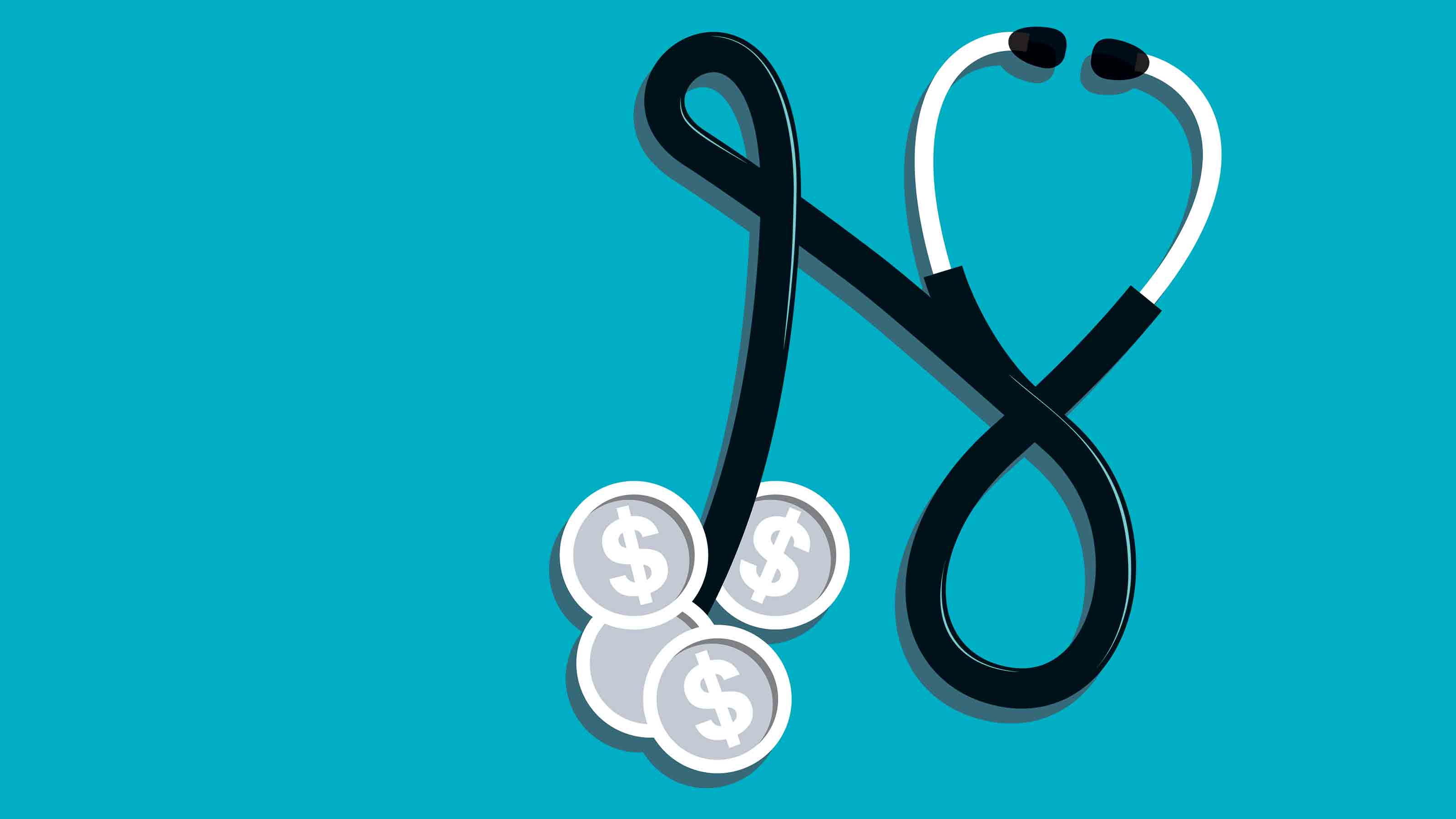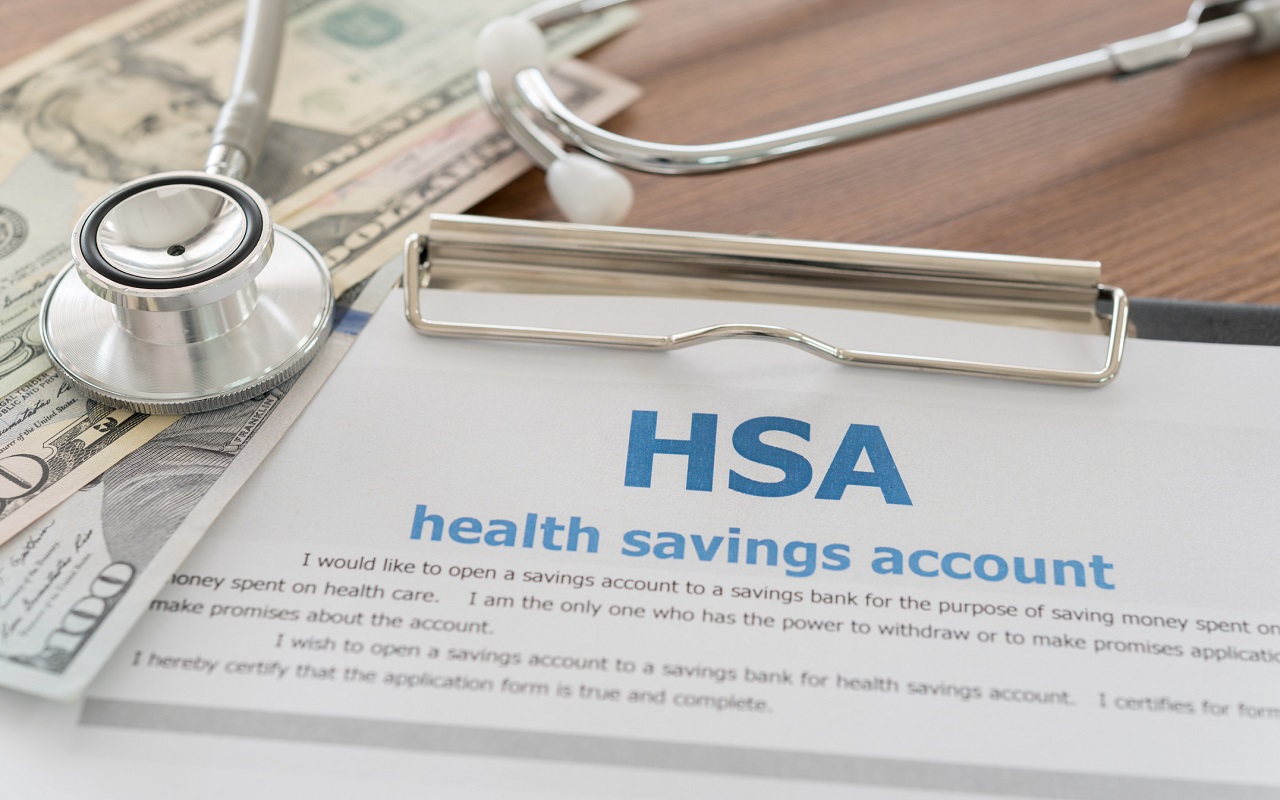20 Ways to Save on Health Care
From maximizing insurance benefits to shopping for discounts to funding tax-advantaged accounts, these tips will lower your costs no matter how you get your care.


Profit and prosper with the best of Kiplinger's advice on investing, taxes, retirement, personal finance and much more. Delivered daily. Enter your email in the box and click Sign Me Up.
You are now subscribed
Your newsletter sign-up was successful
Want to add more newsletters?

Delivered daily
Kiplinger Today
Profit and prosper with the best of Kiplinger's advice on investing, taxes, retirement, personal finance and much more delivered daily. Smart money moves start here.

Sent five days a week
Kiplinger A Step Ahead
Get practical help to make better financial decisions in your everyday life, from spending to savings on top deals.

Delivered daily
Kiplinger Closing Bell
Get today's biggest financial and investing headlines delivered to your inbox every day the U.S. stock market is open.

Sent twice a week
Kiplinger Adviser Intel
Financial pros across the country share best practices and fresh tactics to preserve and grow your wealth.

Delivered weekly
Kiplinger Tax Tips
Trim your federal and state tax bills with practical tax-planning and tax-cutting strategies.

Sent twice a week
Kiplinger Retirement Tips
Your twice-a-week guide to planning and enjoying a financially secure and richly rewarding retirement

Sent bimonthly.
Kiplinger Adviser Angle
Insights for advisers, wealth managers and other financial professionals.

Sent twice a week
Kiplinger Investing Weekly
Your twice-a-week roundup of promising stocks, funds, companies and industries you should consider, ones you should avoid, and why.

Sent weekly for six weeks
Kiplinger Invest for Retirement
Your step-by-step six-part series on how to invest for retirement, from devising a successful strategy to exactly which investments to choose.
Even after employers pick up a substantial amount of the cost, Americans spend thousands of dollars on health care annually. Workers who use employer health insurance plans pay an average of $1,243 a year in premiums for single coverage or $5,588 for family coverage, according to the Kaiser Family Foundation. The average annual deductible is $1,644 for single coverage, and those with family coverage often have an overall deductible of at least $2,000. Annual out-of-pocket maximums may run several thousand dollars. To help relieve the pain of high health care costs, check out these 20 money savers.

Stay in Your Health Insurer’s Network
If you visit a provider that doesn’t fall within your plan’s network, you’ll pay more for care. If you have a preferred provider organization (PPO) plan, you may receive some level of coverage for out-of-network care. But with a health maintenance organization (HMO) plan, you’ll likely pay the full cost. Use your insurer’s online tools to search for in-network providers.
Starting in 2022, by federal law insurers must cover at in-network rates “surprise” medical bills, which result when patients unknowingly get care from out-of-network providers in emergencies. You may also get a surprise bill if you visit an in-network facility and see a provider (say, a physician or anesthesiologist) who is not in-network. In the interim, you can appeal with your insurer any surprise bills that you receive. And many states have their own laws that provide some protection against surprise medical bills.

Take Advantage of Preventive-Care Services
Most health insurance plans must cover certain preventive services without charging you, even if you haven’t met your deductible. They include immunizations; depression and blood-pressure screenings; cholesterol and diabetes screenings for those of specified ages or who have certain risk factors; mammograms for women older than 40; and vision screenings for children. (For a full list, see www.healthcare.gov/coverage/preventive-care-benefits.) High-deductible health plans may cover certain treatments for chronic conditions, such as insulin for diabetes and statins for heart disease, before policyholders reach their deductible.

Tune in to Telehealth
Consulting with clinicians by phone or video chat has grown by leaps and bounds during the pandemic. If your insurance plan partners with a vendor, such as Teladoc, that specializes in telehealth services, using it may cost you less than seeing your regular doctor, says Anne Brunson, of benefits administrator Maestro Health. If you virtually visit one of your usual care providers, you’ll often pay the same amount out of pocket that you would for an in-office appointment, although some insurers may waive or lower your co-payments for telehealth appointments.


Don’t Miss Out on Employer Perks
Your employer may make contributions to your health savings account or flexible spending account on your behalf (some employers match your contribution or require you to participate in a wellness program to receive funds). Or you may have free access to smoking-cessation or weight-management programs. Participating in such programs may come with incentives, too, such as a reduction in your monthly premium.

Contribute to a Health Savings Account
If you have a qualifying high-deductible health plan, for 2021 you can put up to $3,600 in an HSA if you have self-only coverage or $7,200 if you have family coverage (plus $1,000 in catch-up contributions for those who are 55 and older). Pretax (or tax-deductible) money goes into the account, it grows tax-deferred, and you can withdraw the funds tax-free for eligible medical expenses.

Stash Money in a Flexible Savings Account
If you have access to a health care FSA through an employer-sponsored health plan, you may be able to contribute as much as $2,750 in pretax funds for 2021, and you can withdraw the money tax-free for qualifying medical expenses. Typically, employers may allow employees to carry over a limited amount of unused funds to the following plan year, or they may offer a grace period of two and a half months to use the previous year’s funds. Because of special rules in response to the pandemic, however, employers currently may permit employees to roll over unlimited amounts from the 2020 plan year to 2021, and from 2021 to 2022. Or employers can lengthen the grace period for 2020 and 2021 plans to 12 months.

Brush Up on HSA- and FSA-Eligible Expenses
You can withdraw HSA and FSA money tax-free to pay for deductibles and co-payments or coinsurance, as well as a variety of other expenses, including eyeglasses, medical monitoring and testing devices, and orthodontia. And thanks to rules that went into effect in 2020, you can now use the funds for over-the-counter drugs (such as pain relievers, cough suppressants and antihistamines) without a prescription, as well as for feminine-hygiene products.

Save for Retirement with your HSA
HSA funds have no expiration, making an HSA a great vehicle to tuck away money for medical expenses in retirement. Premiums for Medicare parts B and D and Medicare Advantage plans (but not supplemental policies) are HSA-eligible, as are long-term-care insurance premiums (up to specified limits) and expenses for certain home improvements to accommodate medical conditions—say, widening doorways or adding support bars.

Deduct Medical Expenses
If you itemize deductions on your tax return, you may deduct qualified medical and dental expenses (such as prescription drug costs and payments to medical providers) that are unreimbursed by insurance and exceed 7.5% of your adjusted gross income. See IRS Publication 502, Medical and Dental Expenses, for more information.

Switch to Generic or Alternative Drugs
Have your doctor prescribe generic versions of your medications, if available, or ask your pharmacist to switch to a generic drug at the counter. Generics cost as much as 85% less than brand-name drugs. If a generic drug is unavailable, ask your physician whether there are similar medications to treat your condition that could do the job just as well, and check whether your insurer covers those drugs at a more favorable rate.

Get 90-Day Drug Refills
For maintenance medications that you take regularly, you may save money by ordering 90-day supplies rather than 30-day refills. Walmart, for example, charges $4 (without insurance) for 30-day supplies of certain generic medications and $10 for 90-day supplies. Receiving mail-order medications—which often come in 90-day supplies—may save you money, too.

Compare Drug Prices and Get Discounts
At sites such as GoodRx.com, SingleCare.com and WeRx.org, enter the name of your medication and your zip code to see a comparison of prices at pharmacies near you and get coupons. In some cases, the cash price with a coupon may be lower than what you’d pay with insurance. Some pharmacies have their own discount programs. The Walgreens Prescription Savings Club ($20 yearly for an individual or $35 for families) provides discounts of up to 80% on cash drug prices. Check NeedyMeds.org for information on drug discounts and assistance programs, too.
You often can’t use coupons or discount programs in conjunction with your insurance—so a drug purchase with a coupon or discount program won’t count toward your deductible unless the insurer allows you to submit the purchase later. And if you occasionally bypass insurance or switch among pharmacies, the pharmacies may not be able to monitor for dangerous interactions between medications.

Compare the Cost of Care
Comparing prices for procedures at different facilities could save you big bucks. Typically, you’ll pay more for outpatient services—such as x-rays, MRIs and minor surgeries—performed at a hospital than at facilities not owned by a hospital, says Michael O’Neil, of Healthcare Bluebook, which collects information on health care pricing. When he needed orthopedic work on his knee, O’Neil estimates that he saved about $10,000 by asking his physician to order scans and perform a procedure at a clinic outside of the local hospital’s network. Visiting an urgent-care center often costs less than going to an emergency room.
At www.healthcarebluebook.com, you can use a free tool that offers estimates of fair prices in your area for a range of procedures. (Recently, the tool has been unavailable while being revamped, but it is expected to be up and running by July.) At www.fairhealthconsumer.org, you can see both in-network and uninsured pricing estimates for procedures in your region. And new federal rules require hospitals to post on their websites price information for their services.

Reshop your Health Insurance Plan
During each annual open enrollment period, review your options. Especially if your health or family status has changed, you may find that a plan with a different deductible, premium, network or drug formulary is most cost-effective. If you use the HealthCare.gov exchange, you have a special opportunity this spring to enroll in or switch plans.
Medicare beneficiaries should re-evaluate their plans, too. “Insurance companies that offer Part D drug plans revise their benefits, premiums and co-pays each year, so it’s a good idea to review your annual notice of change each September,” says Danielle Roberts, of Boomer Benefits, which helps consumers navigate Medicare plans. Or you may find that it makes sense to switch to an all-in-one Medicare Advantage plan. Go to www.medicare.gov/plan-compare to shop for Part D and Advantage plans.

Get Help Choosing a Plan
A knowledgeable agent or broker can steer you through plan options at no extra charge to you. If you’re buying a plan in the individual market, search for an agent or broker at https://localhelp.healthcare.gov. Medicare beneficiaries can find local counseling and assistance by choosing their state at www.shiptacenter.org.

See Whether You Qualify for Financial Assistance
If your income is below certain levels or you meet other requirements, you may be eligible for financial assistance to help cover your medical costs. Medicare.gov has information on Medicare’s programs, including Extra Help, which defrays prescription-drug expenses for those with limited income and resources. Check with your state’s insurance department, too—some programs have higher income thresholds than you might expect, says Casey Schwarz, of the Medicare Rights Center. New York’s Elderly Pharmaceutical Insurance Coverage program, for example, offers assistance for married Medicare beneficiaries with income of up to $100,000 ($75,000 if you’re single).

Ask About Cash Pricing
Before you schedule a procedure, ask the provider for its lowest price for patients who pay cash without insurance, says O’Neil. It may be lower than the insured rate, and sidestepping insurance may be worthwhile if you have a big deductible that you don’t expect to meet before the year ends.

Review Bills and Insurance Explanations of Benefits.
Check to see that your insurer is covering medical costs appropriately and that you received all of the services and medications listed on your bills. For complex procedures and hospital visits, request an itemized bill that details each fee. If you see a problem, ask for a correction. Brunson, of Maestro Health, once noticed that she was charged for intravenous fluids that she never received during an emergency-room visit.

Appeal Higher Medicare Premiums.
You will pay an “income-related monthly adjustment amount” (IRMAA) on your Medicare Part B and Part D premiums if the modified adjusted gross income on your tax return from two years ago exceeded certain levels. For 2021, an extra charge applies for those with 2019 income greater than $88,000 on an individual return or $176,000 on a joint return. If your income has fallen because of a major life-changing event, you can request an adjustment to your IRMAA by submitting Form SSA-44 to the Social Security Administration.
Profit and prosper with the best of Kiplinger's advice on investing, taxes, retirement, personal finance and much more. Delivered daily. Enter your email in the box and click Sign Me Up.

Lisa has been the editor of Kiplinger Personal Finance since June 2023. Previously, she spent more than a decade reporting and writing for the magazine on a variety of topics, including credit, banking and retirement. She has shared her expertise as a guest on the Today Show, CNN, Fox, NPR, Cheddar and many other media outlets around the nation. Lisa graduated from Ball State University and received the school’s “Graduate of the Last Decade” award in 2014. A military spouse, she has moved around the U.S. and currently lives in the Philadelphia area with her husband and two sons.
-
 Dow Adds 1,206 Points to Top 50,000: Stock Market Today
Dow Adds 1,206 Points to Top 50,000: Stock Market TodayThe S&P 500 and Nasdaq also had strong finishes to a volatile week, with beaten-down tech stocks outperforming.
-
 Ask the Tax Editor: Federal Income Tax Deductions
Ask the Tax Editor: Federal Income Tax DeductionsAsk the Editor In this week's Ask the Editor Q&A, Joy Taylor answers questions on federal income tax deductions
-
 States With No-Fault Car Insurance Laws (and How No-Fault Car Insurance Works)
States With No-Fault Car Insurance Laws (and How No-Fault Car Insurance Works)A breakdown of the confusing rules around no-fault car insurance in every state where it exists.
-
 9 Types of Insurance You Probably Don't Need
9 Types of Insurance You Probably Don't NeedFinancial Planning If you're paying for these types of insurance, you may be wasting your money. Here's what you need to know.
-
 Amazon Resale: Where Amazon Prime Returns Become Your Online Bargains
Amazon Resale: Where Amazon Prime Returns Become Your Online BargainsFeature Amazon Resale products may have some imperfections, but that often leads to wildly discounted prices.
-
 What Does Medicare Not Cover? Eight Things You Should Know
What Does Medicare Not Cover? Eight Things You Should KnowMedicare Part A and Part B leave gaps in your healthcare coverage. But Medicare Advantage has problems, too.
-
 Roth IRA Contribution Limits for 2026
Roth IRA Contribution Limits for 2026Roth IRAs Roth IRAs allow you to save for retirement with after-tax dollars while you're working, and then withdraw those contributions and earnings tax-free when you retire. Here's a look at 2026 limits and income-based phaseouts.
-
 Four Tips for Renting Out Your Home on Airbnb
Four Tips for Renting Out Your Home on Airbnbreal estate Here's what you should know before listing your home on Airbnb.
-
 Five Ways to a Cheap Last-Minute Vacation
Five Ways to a Cheap Last-Minute VacationTravel It is possible to pull off a cheap last-minute vacation. Here are some tips to make it happen.
-
 How Much Life Insurance Do You Need?
How Much Life Insurance Do You Need?insurance When assessing how much life insurance you need, take a systematic approach instead of relying on rules of thumb.
-
 When Does Amazon Prime Day End in October? Everything We Know, Plus the Best Deals on Samsonite, Samsung and More
When Does Amazon Prime Day End in October? Everything We Know, Plus the Best Deals on Samsonite, Samsung and MoreAmazon Prime The Amazon Prime Big Deal Days sale ends soon. Here are the key details you need to know, plus some of our favorite deals members can shop before it's over.
